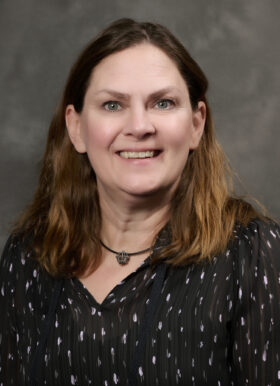
Heather L. True, PhD
David English Smith Professor, Department of Cell Biology & Physiology
- Phone: 314-362-3934
- Email: heather.true@nospam.wustl.edu
The True Lab studies protein misfolding and aggregation are the hallmark of several neurodegenerative diseases and other disorders.
Research Interests
Protein misfolding and aggregation are the hallmark of several neurodegenerative diseases and other disorders. Protein misfolding can be sporadic or due to genetic mutations that alter folding. In addition, chaperones that normally assist in protein folding have been linked to inherited diseases (chaperonopathies) when mutated. My research investigates how the process of protein misfolding occurs, how it propagates, and how these problems can be corrected in the cell. We are specifically interested in prions, toxic protein aggregates and amyloid associated with neurodegenerative diseases, and chaperone mutants linked to a form of muscular dystrophy. We use a yeast model system and biochemical approaches to uncover important cellular contributors and elucidate mechanisms to prevent or rescue protein misfolding and aggregation.
Professional Education
- BS: University of Wisconsin – Parkside, 1992, Molecular Biology
- MS: University of Illinois-Urbana-Champaign, 1995, Microbiology
- PhD: University of Illinois-Urbana-Champaign, 1998, Microbiology
- Postdoc: University of Chicago, 1998-2001, Genetics
- Postdoc: The Whitehead Institute/MIT, 2001-2003, Genetics
Graduate & Fellowship Program Affiliations
Links
True Lab
McDonnell Sciences Building (MS: 8228-0012-04)
314-362-3669
heather.true@wustl.edu
The True Lab is interested in the biological consequences of yeast prions – in both their capacity to function as novel epigenetic elements, as well as in their utility in modeling mechanisms of protein misfolding and aggregation that mimic important events in several neurodegenerative disorders. Additionally, we are interested in how prions in yeast impact survival and adaptation. We are also interested in understanding what other prions exist and how broadly prions affect cellular physiology. We are also using yeast prions to understand how the environment influences protein misfolding and aggregation, a question that has been difficult to address with current model systems of neurodegenerative disorders.